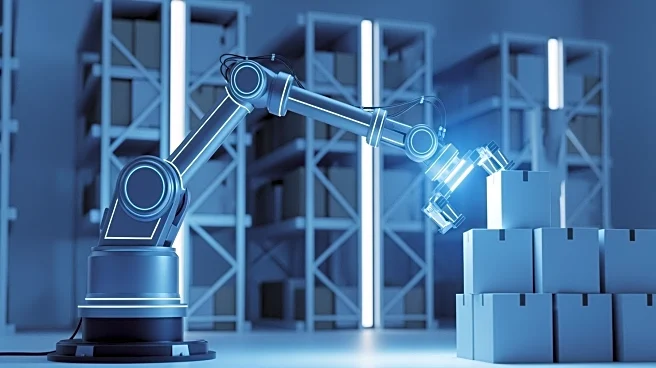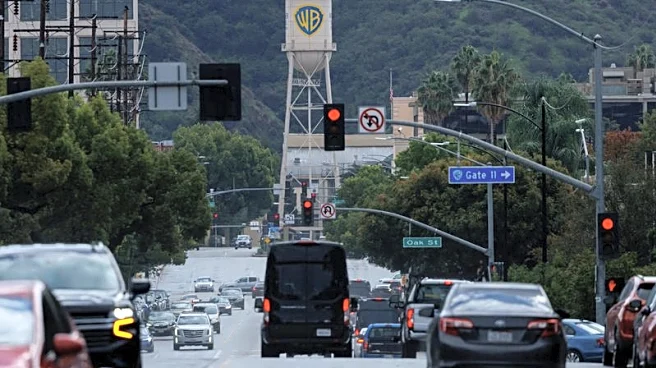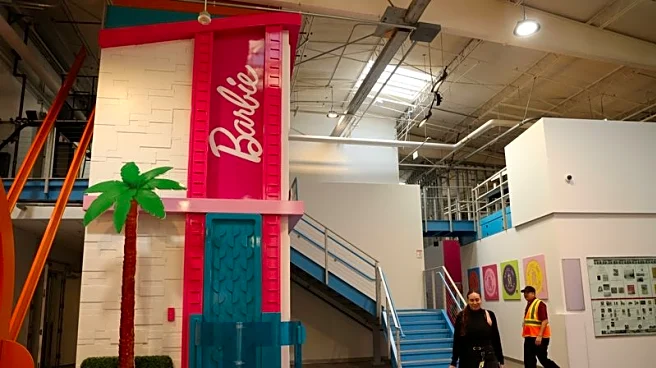What's Happening?
Amazon is reportedly planning to replace over 600,000 human jobs with robots by 2033, according to internal documents. The company aims to automate 75% of its operations, leveraging advanced technology
to enhance efficiency and reduce labor costs. Amazon has already deployed over 1 million robots in its fulfillment and delivery network, representing a significant shift towards automation. The company is considering strategies to mitigate the impact on communities that may lose jobs, including participating in local events and rebranding automation as 'advanced technology' or 'cobot' to suggest collaboration.
Why It's Important?
Amazon's move towards increased automation could have profound implications for the U.S. labor market, particularly in the logistics and warehousing sectors. As one of the largest employers in the country, Amazon's decision to replace human workers with robots may lead to significant job losses, affecting economic stability and community livelihoods. The potential savings of up to $4 billion annually highlight the financial incentives driving this shift. However, the broader societal impact, including wage reductions and job displacement, raises concerns about the future of employment in automated industries.
What's Next?
Amazon's automation strategy may prompt discussions among policymakers, labor unions, and industry leaders regarding the ethical and economic implications of widespread job replacement. The company plans to hire 250,000 positions for the holiday season, indicating ongoing demand for human labor in certain areas. As automation progresses, Amazon may need to invest in workforce upskilling and community support initiatives to address potential backlash and ensure a smooth transition.
Beyond the Headlines
The shift towards automation at Amazon reflects broader trends in the global economy, where technological advancements are reshaping traditional employment models. The ethical considerations of replacing human labor with machines, including the impact on worker rights and community welfare, may influence future regulatory frameworks. Amazon's approach to rebranding automation as 'cobot' suggests a strategic effort to manage public perception and maintain its image as a responsible corporate citizen.










